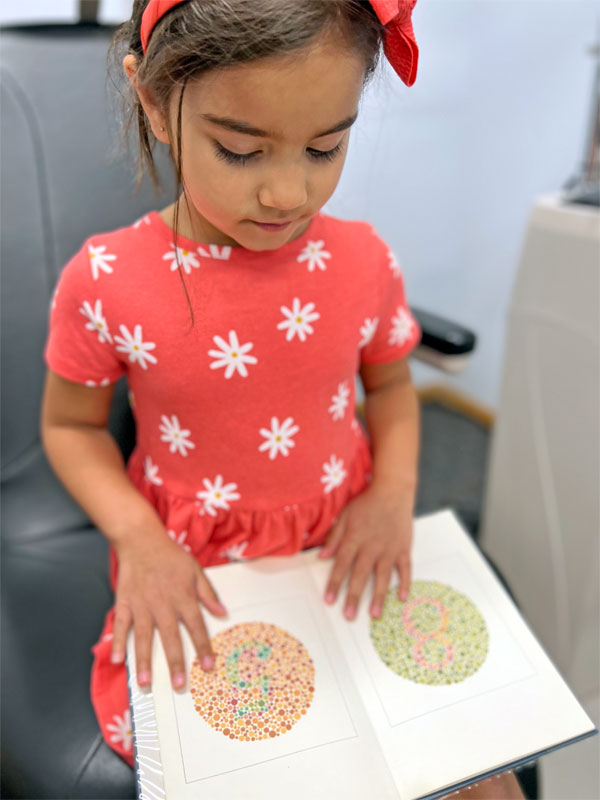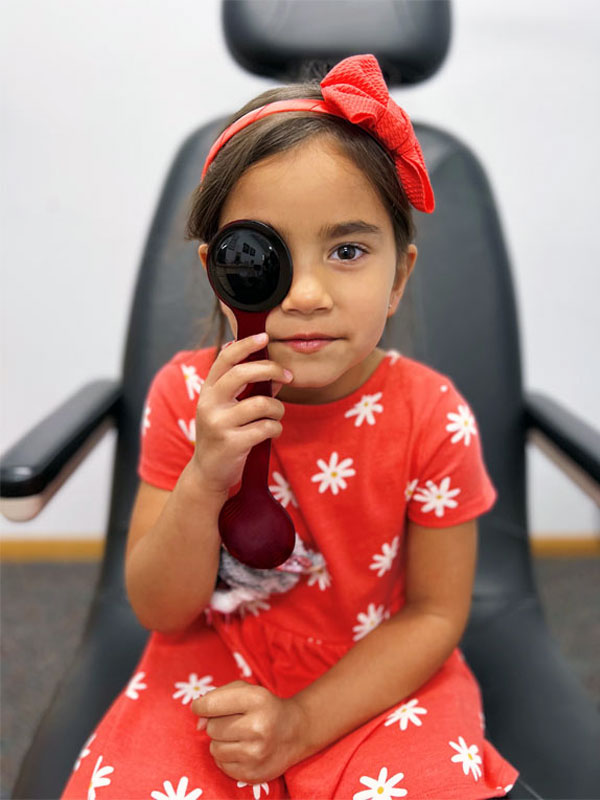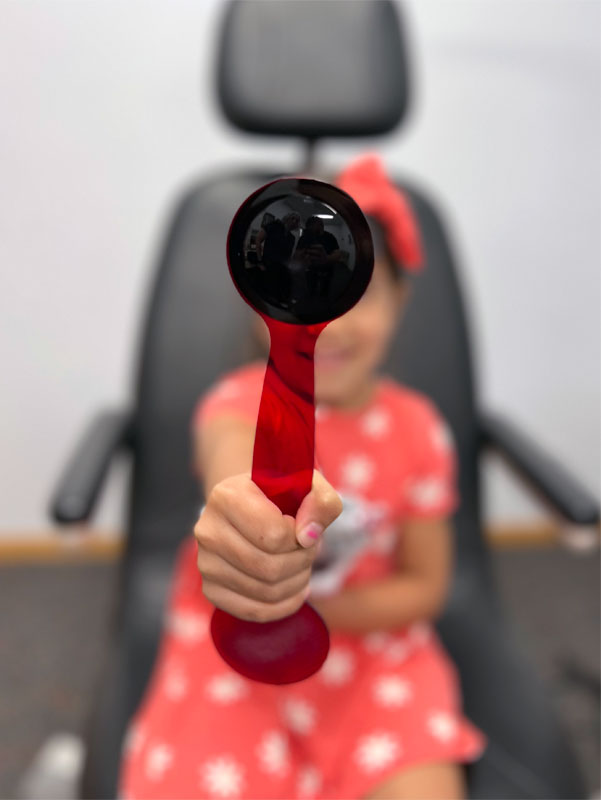Pediatric Eye Exams
Schedule AppointmentClear and healthy vision is essential for a child’s physical development, academic success, and overall well-being.
At our eye care center in Tinley Park, we provide pediatric eye exams for babies, children, and teenagers to check the accuracy of your child’s vision, diagnose any eye conditions, and provide a plan of treatment to ensure they experience the best possible vision and eye health.
What Is a Children’s Eye Exam?
It’s important for children to have their eyes examined to ensure they are healthy and that they don’t have any vision problems which may interfere with their performance in school. Learning is all about vision; in fact, up to 80% of what a child learns is presented visually. Eye exams for children assess whether they have the necessary visual skills which are essential for learning:
- Excellent vision for near, up-close work and for distance.
- Comfortable and correct “eye teaming,” which means the eyes work well together and can focus on the same place in space.
- Excellent ability to switch the focus from an object up close to an object in the distance.
- Accurate eye movement skills, such as the ability to read a line of text.
When Should Children Have Their First Exam?
Ideally, babies should have their first eye exam at six months old, even if there are no apparent problems with their vision. Your doctor at Walter Eye Clinic will check for signs of nearsightedness, farsightedness, and astigmatism as well as eye movement ability and the alignment of the eyes.
While major problems with the eyes and vision in babies are rare, they can happen. Excessive tearing, constant eye turning, and extreme sensitivity to light can be signs of an eye problem in babies. It’s important to establish a relationship with a qualified pediatric eye doctor to check for eye problems and to assess their developing visual skills.
The next time to bring your child in for a comprehensive exam is around three years old, then once more before they enter kindergarten. Once a child is in school, they should have a comprehensive eye exam at least once every two years if no vision correction is needed. If a child has been prescribed eyeglasses or contact lenses, then they should be examined on an annual basis or as recommended by your doctor based on your child’s visual needs.
The eye exam methods our optometrists use depend on the age of the child. However, in all cases, a comprehensive eye exam for a child will include learning about their history, testing their vision, determining whether eyeglasses are needed, testing their eye alignment, conducting an eye health evaluation, and if needed, prescribing eyeglasses.



Common Vision Problems in Children
While not an exhaustive list, here are some of the common vision problems seen in children.
- Myopia, also known as “nearsighted,” means your child can see objects well up close but has problems seeing objects in the distance, like a blackboard. Myopia can be progressive, meaning that the prescription gets worse every year. If a child has progressive myopia, this can mean a higher risk of developing eye diseases later in their life. At Walter Eye Clinic, we offer solutions to control progressive myopia in children, so that it doesn’t get any worse.
- Hyperopia, also known as “farsighted,” means your child can see objects well in the distance, such as a blackboard, but has problems seeing objects up close such as a book.
- Astigmatism is an imperfection in the curvature of the eye that causes blurry vision both up close and in the distance.
- Amblyopia, also known as “lazy eye,” is best treated while the child is still young, and their visual system is in development.
- Strabismus, otherwise known as hypertropia or crossed eyes, is a condition in which the eyes aren’t looking at the same place at the same time. This condition can occur in people who are very farsighted or have poor eye muscle control. Children who have a family history of strabismus may be more likely to develop this condition, and children who have Down syndrome or cerebral palsy can be at higher risk to develop strabismus.
How Does a Kids’ Eye Exam Differ from a School Vision Screening?
Vision screenings performed in schools typically check your child’s eyes for basic abnormalities and general vision acuity. But if a problem is suspected, you will be referred to an optometrist for a comprehensive pediatric eye exam. These exams are more thorough. A pediatric optometrist has the clinical expertise necessary to diagnose problems and develop a treatment plan specific to your child’s individual needs, including writing a prescription for eyeglasses.
If your child needs eyeglasses for vision correction, we offer a wide selection of eyewear options well-suited for children of all ages. Our team will ensure that your child has the clearest vision possible and that their glasses provide a comfortable fit with the ability to withstand school, sports, and other playful activities.
Schedule Your Child’s Pediatric Eye Exam
Many parents wait until a problem is apparent before taking their child to see an eye doctor. Doing this can delay essential care and lead to eye issues that get progressively worse or become more difficult to correct over time. Don’t wait—make pediatric eye exams a priority. Visit Walter Eye Clinic for a comprehensive pediatric eye exam. We’ll make sure to find the optimal solutions for your child’s vision problems and help set them up for great eye health and clear vision for years to come.
Contact us to schedule a children’s eye exam today.
